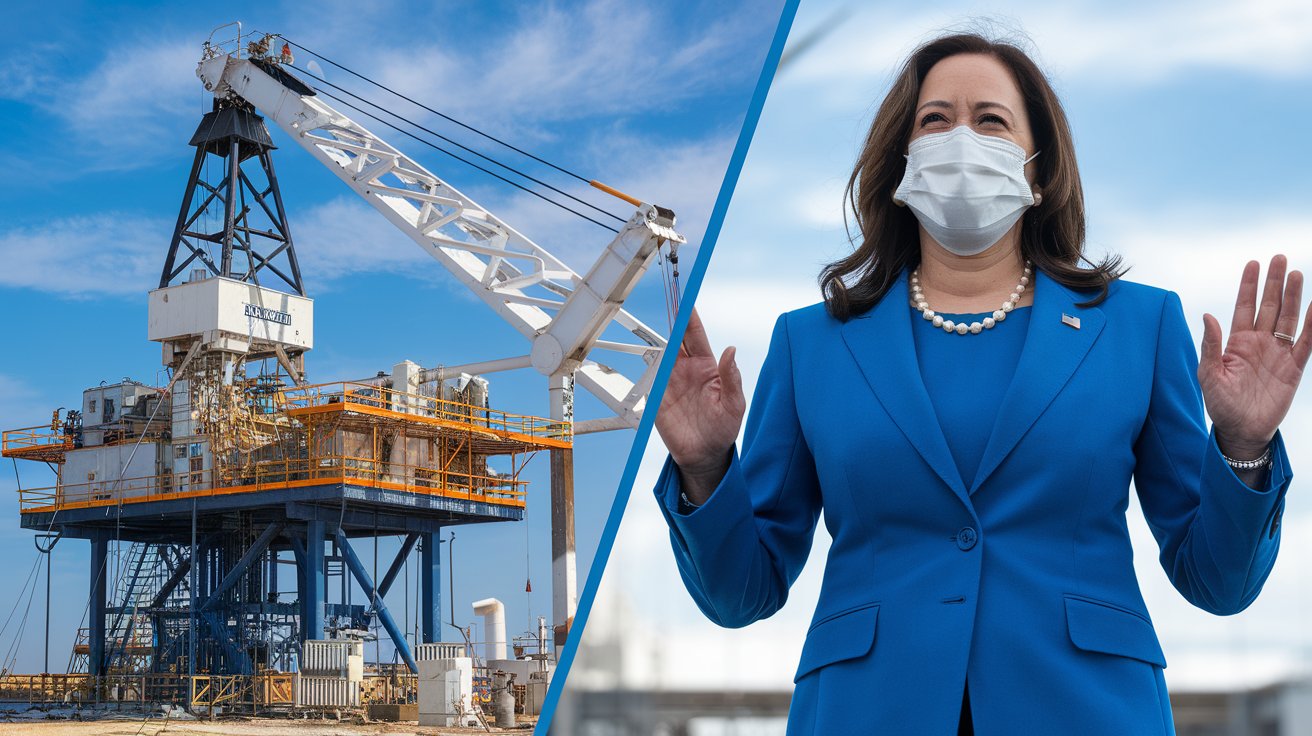U.S. Vice President Kamala Harris’s evolving stance on fracking has captured the attention of energy executives and investors, particularly in light of its economic implications. While Harris once opposed the controversial extraction method, industry leaders now express confidence that she will not pursue a ban if she ascends to the presidency. This shift comes at a critical juncture, as fracking remains a key issue in the U.S. energy debate, especially in swing states like Pennsylvania, a significant natural gas producer.
Lorenzo Simonelli, CEO of Baker Hughes, a major oil field services company, voiced this confidence on the sidelines of the GasTech conference in Houston. “I think she is changing her views,” Simonelli said when asked about Harris’s stance on fracking. This is a crucial signal to energy investors, who are closely watching how U.S. energy policies will impact future production levels and commodity prices.
Fracking and Its Role in the Energy Market
Fracking, or hydraulic fracturing, has been instrumental in boosting U.S. natural gas production, lowering domestic energy costs, and enhancing energy independence. However, the process has been a lightning rod for environmental criticism due to its potential impacts on water supplies and seismic activity. Despite these concerns, fracking plays a pivotal role in the U.S. energy landscape, particularly in states like Pennsylvania, which sits atop the vast Marcellus Shale.
Kamala Harris, once a vocal opponent of fracking during her tenure as a senator from California, has modified her stance on the matter. As vice president, Harris has affirmed that she would not pursue a blanket ban on fracking, especially on federal lands, a move that has reassured both industry players and market participants. This shift in tone was underscored by a spokesperson for Harris, who highlighted her tie-breaking vote on the Inflation Reduction Act, which allowed for new fracking leases.
Harris Faces Political and Economic Pressure
While Harris’s nuanced position might appear politically motivated, her approach aligns with the broader reality of U.S. energy needs. Her Republican rival, former President Donald Trump, has repeatedly asserted that Harris and her administration would seek to eliminate fracking, a claim that appeals to his base but is increasingly at odds with Harris’s current position. Energy executives are less inclined to focus on campaign rhetoric, instead keying in on policy signals that could impact the sector.
Jack Fusco, CEO of Cheniere Energy, the largest exporter of U.S. liquefied natural gas (LNG), underscored the necessity of fracking to keep natural gas prices in check. “Without fracking, gas prices would be much higher,” Fusco said during the GasTech conference. Investors, particularly those in the natural gas and LNG export markets, will note that U.S. fracking is a stabilizing force for global energy markets. Fusco’s confidence in Harris’s approach reflects a broader industry consensus that the administration will have to balance environmental goals with the economic realities of energy production.
Similarly, Meg O’Neill, CEO of Woodside, an Australian energy company acquiring U.S. LNG developer Tellurian, echoed this sentiment. “If you stop fracking in the U.S., it will be devastating for the economy,” she warned. O’Neill’s comments highlight the long-term consequences that a sudden shift in U.S. energy policy could have on global supply chains, pricing, and investor confidence.
Open Questions and Market Impact
For traders and investors, Harris’s stance raises several key questions. Will she maintain her moderate position on fracking in the face of growing pressure from environmentalists within her party? How might a Harris administration further balance the tension between renewable energy goals and the immediate needs of the U.S. energy sector? These uncertainties will undoubtedly play into market dynamics, particularly for energy companies involved in fracking, LNG exports, and oil field services.
Moreover, the ongoing regulatory environment remains a concern for energy executives. The Biden administration’s pause on new LNG export permits earlier this year, ostensibly to evaluate environmental impacts, has frustrated industry leaders. Ryan Lance, CEO of ConocoPhillips, expressed these frustrations at the conference, stating that the focus on fracking is misguided. “You gotta stop this crazy LNG pause from going forward,” Lance remarked, emphasizing the broader strategic importance of exporting LNG as part of the U.S. energy mix.
Conclusion: Investors Watch for Policy Clarity
For traders and investors, particularly those with stakes in energy companies, the next steps in U.S. fracking policy and LNG exports will be critical to monitor. While Harris has taken a more moderate approach, market participants will be wary of any shifts, especially as political pressures mount. Companies like Cheniere, Woodside, and ConocoPhillips remain confident in the importance of fracking to maintain competitive energy prices and energy security. However, any significant regulatory changes could pose risks to the industry’s profitability and growth prospects.
As the presidential race continues to heat up, Pennsylvania’s status as a key natural gas hub will keep fracking at the forefront of both political and economic discussions. For now, traders and investors should keep a close watch on the evolving landscape, as any policy shifts could significantly impact energy markets and the broader economy.















